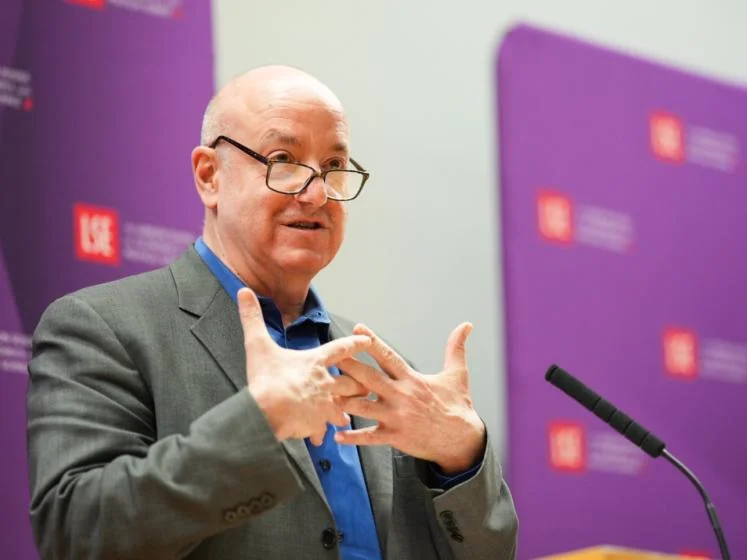What is needed is hard thinking

LSE President and Vice Chancellor, Professor Larry Kramer, presented his inaugural LSE lecture on Monday 14 October 2024, outlining five challenges for the social sciences.
Opening his lecture with a reflection on why he returned to higher education, after many years at the helm of the Hewlett Foundation, Professor Kramer highlighted the vital role that universities like LSE play in developing ideas: "They …have and deserve a special place because of the singular nature of their cultures and commitments," with a "...unique role in society as the only institution whose whole purpose and very reason for being is an ongoing effort both to develop ideas and to challenge ideas, including our own. And not just ideas in the abstract. Ideas that address the major issues and problems of society," he said.
Discussing LSE’s appreciation of this practical role - ‘for the betterment of society’ - Professor Kramer quoted Beatrice Webb, who wrote on the creation of LSE: "Reform will not be brought about by shouting. What is needed is hard thinking."
He went on to focus in depth on five major challenges facing the social sciences, and which LSE research and education is tackling: challenges around popular government, political economy, sustainability, inequality, and growth of new technologies. Colleagues may disagree about the challenges, and the different ways to ‘slice the problem’, he said, but "My goal, and my hope over the coming years, is to provide all of you the support, resources, and space to do your best work on these and whatever other challenges emerge."
Despite the enormity of challenges outlined in the lecture, Professor Kramer concluded on a positive note, returning to the value and strength of universities:
"Many or most of the best ideas and advances of the past several centuries have come from people in universities, more than a few from this one. That has happened, I believe, because of the environment a great university fosters and protects: one in which a community of scholars, working in different disciplines, asking different questions, using different methodologies, reaching different conclusions; all have the freedom to explore widely and deeply and, most importantly, without fear; a community in which differences are not just tolerated but sought…"
A podcast of this lecture is available to download from "What is needed is hard thinking": five challenges for the social sciences.
A video of the lecture is available to watch at "What is needed is hard thinking": five challenges for the social sciences.